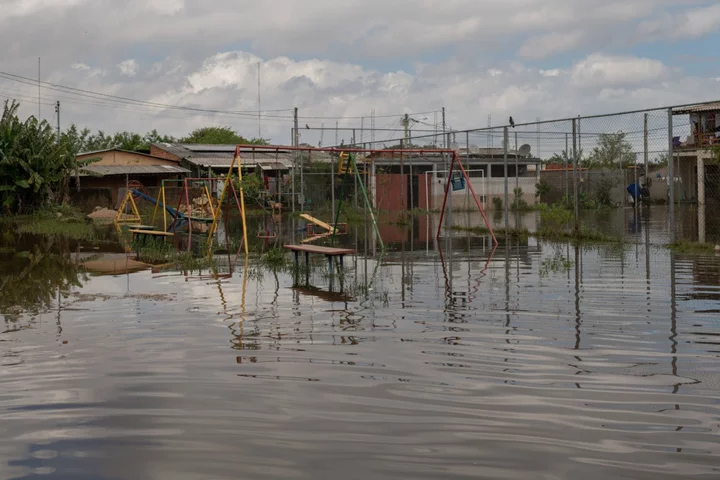As insurers start to pull out from markets battered by the fallout of climate change, governments are increasingly at risk of having to foot the bill, according to the Bank for International Settlements.
“This trend, if left unabated, may lead to an insurance market failure for climate-related risks and ultimately force governments to become ‘insurers of last resort’,” researchers from BIS’s Financial Stability Institute said in a report.
Financial watchdogs are stepping up scrutiny of insurers to monitor the developing risks as the industry retreats from markets deemed too risky to cover. BIS researchers are urging the industry, governments and regulators to work together to ensure there’s adequate and affordable insurance to cover the extreme weather events ahead.
The finance industry is proving slow to address the risks posed by climate change to their operations, their capital, cash flows and customers. That’s as the absence of good-quality data means insurers face major hurdles in accurately estimating the losses they face.
“A major complicating factor is the uncertainty over future climate change impacts, which may unleash extreme events that have not occurred in the past for example due to climate tipping points,” the researchers said. “There could also be spillovers to other financial sectors — including the banking sector — if insurance is no longer available.”
What’s more, insurers aren’t generally making climate considerations explicit in their pricing and underwriting policies, according to the BIS report.
What is clear, though, is that a growing number of insurers is retreating from high-risk areas. The trend is likely to continue as insurers “gain greater awareness and knowledge in incorporating climate-related risks in their pricing and underwriting approaches,” the researchers said.
In a separate report, BIS said banks have yet to embrace its principles for managing climate-related financial risks, published in June 2022. Most supervisors responding to a survey said that “there has been no progress by banks to include climate-related capital and liquidity impacts into existing assessment processes,” BIS said.









